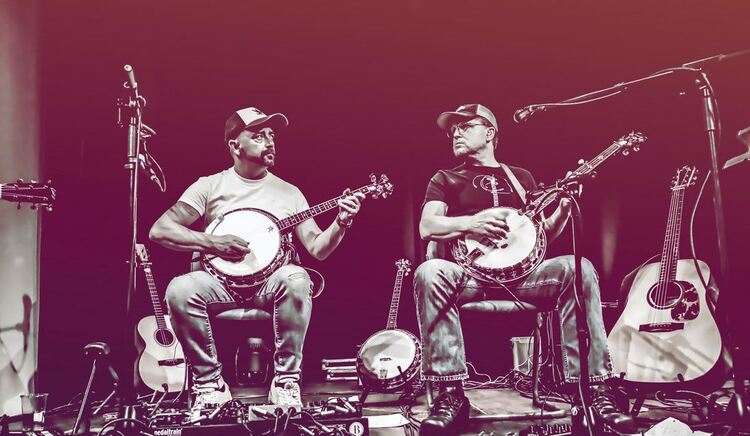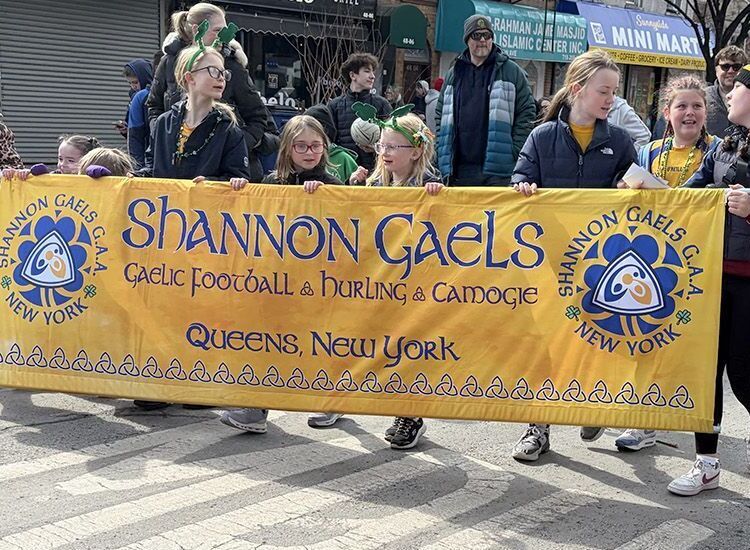Tom Phelan.
BERNIEKEATINGPHOTOGRAPHY.COM.
By Tom Phelan
[This is the latest episode in the author’s series about growing
up in Mountmellick, Co. Laois, in the 1940s and ‘50s.]
The livestock fair in Portarlington was held on the first Friday of every month. Dad sometimes opted to sell his cattle in that fair instead of the one in Mountmellick because it attracted buyers from further afield. But Portarlington was six miles from home, and getting livestock there on foot and hoof was a small-time military operation, even if we only brought a few animals.
The journey began at six in the morning. Dad commanded from the front while standing in the pony’s cart, pulled by the complacent Black. The handlebars and front wheel of a bike hung over the backboard, and a bundle of hay covered the rest. My brother Eddie and I were two horseless cowboys, while Eamon Hyland walked behind swishing an ashplant to keep the cattle moving.
Eamon had arrived in our farmyard on his bike at a quarter to six while Dad was hitching the pony to the cart. “We’re leaving in a few minutes,” he said to Eamon, a hint of reprimand in his voice.
“Fifteen,” Eamon said.
“You have to eat your breakfast.”
“I’ll be ready at six. Isn’t that the time you said we’re leaving?” I liked the way Eamon could stand up to Dad.
Eamon was 18 when he began working on our farm. He was a big brother to all of us, a tall and quiet man who became highly embarrassed one day when, after missing a rat with the tines of a pitchfork, he blurted out “Hure!” in Mam’s presence. For my brother and me, Eamon was an unsuspecting educator. As we toiled with him in the fields he told us the entire plot of the last picture he had seen, and he introduced us to town life and the funny nicknames some people had, like Mickey Dogshite and Turkey Toes and Yaller Mick. He told us the gossip that our parents believed was beyond our years, like when a neighbor murdered her brother and a dead infant was found buried on their farm. And he made us laugh about the funny things Dad said when there were no children around: “Where’s the pitchfork?” Eamon asked. “Up me arse,’ Dad replied.
As six o’clock was striking in the church tower, Eamon emerged from our kitchen after his breakfast of boiled egg, Mam’s brown bread, and mugs of tea. I followed Eddie out onto Strahard Lane, both of us armed with ashplants to steer our three cattle toward the town. Then Dad drove the pony-and-cart through the tall galvanized gate; the lowing bullocks came next, with Eamon driving them on from behind. Before we got to the Back of Macks field, I heard Mam closing the farmyard gates, and that sound locked the cattle out into a world far away from the familiarity and comfort of the farm and the other animals they had spent their lives with. They were in terra incognita, wandering from one side of the lane to the other; stopping and stretching their necks to allow for morose and wailing moos. When they passed low hedges they gaped across the top of the bushes as if contemplating a leap to freedom.
When Dad pointed and shouted from his crow’s nest, Eddie ran forward past the animals to keep them out of Missus Mack’s front yard and flower garden. When we eventually came to the end of the lane, the cattle were driven sharply to the right onto the Borness Road toward Portarlington. In the slanting morning sun the animals examined every weakness in the hedges as if looking for an escape from the hard surface of the road. What spike heels are to a woman’s feet, a macadamed road is to an ungulate because it has to use its hoof tip to bear all of its weight; in soft ground the toes sink in and the weight is dispersed throughout the foot.
Side roads and open gates also offered the cattle escape routes. From the pony’s cart Dad called out when he saw an opening ahead, and Eddie and I took turns running forward past the cattle to stand guard. When the animals had slouched by, we fell in with Eamon walking behind them.
At last, we passed the cemetery and drove the cattle up the railway bridge at the edge of Portarlington. As we crested the bridge, a church bell rang out nine o’clock. It had taken us three hours to get that far.
Dad had told us that if anyone in Portarlington asked where we lived we were to say, “Just past Lee Castle.” If a jobber knew we would have to drive unsold cattle home again for six miles, he would have Dad by the scruff of the neck when it came to bargaining.
When we arrived at the Market Square several farmers had already gathered, their small herds separated from each other by flailing ashplants and loud shouting. Forced to stand against the walls of the surrounding buildings, the frightened animals attempted to escape whenever they saw the opportunity, but they usually slipped and fell in cow dung or urine, slapped their chins against the hard surface, and then were shouted back into place as they tried to regain their hooves. When the cattle turned their rear ends to the walls and divested themselves of shovelfuls of sloppy dung, the green shite slithered down the pebble dashing to the pavement. But when they relaxed their sphincters while facing the walls, spewing geysers shot out onto the street. If the stream did not hit anyone directly, the splashes were like buckshot bouncing off the road and splattering the boots and lower legs of the bystanders.
Even to a child of a farmyard like myself, the confusion, mooing, shouting, and the nervousness of the animals were unsettling.
Once we had claimed a space, Dad undid the bundle of hay in the cart and fed some of it to the bullocks, who munched while Dad and I stood guard. Eamon and Eddie brought the pony and cart to the yard at the back of a farmer’s shop, where they tied Black to a post and gave her food and water.
One of my jobs at the fair was to eavesdrop on the farmers and jobbers arguing over the price of an animal. The information I brought backgave Dad some idea of what price he could ask for his bullocks.
When the buyers approached Dad, they opened the hostilities by disparaging the animals.
“God! They’re a hungry-looking bunch.”
“Will you look at them bags of bones!”
“You must have run out of grass months ago.”
Dad hated cattle jobbers as intensely as he hated rats, but he could not afford to let his temper loose on them. So on this day, he managed the would-be buyers by ignoring their insults, only speaking to them when they asked his price.
“Are you buying?”
“I might be.”
“Are you selling?”
I might be…I might be selling the three of them together.’
“Where you from?”
“Out near Lee Castle.”
“The one in the middle doesn’t look too good.”
I was always surprised at Dad’s dealing with jobbers. He simply didn’t answer when they tried to put him on the defensive. When he stated his price and the buyer came back with a meaningless offer, Dad didn’t even look at the man. He went through the motions of taking care of his animals, rubbing one of them on the calming spot beside the tail.
“Well?” the jobber asked.
Dad ignored the man, went to another animal, and put it at ease with his magic fingers. He kept at it until the haggler had raised his offer within bargaining distance of Dad’s price. After that, the deal was reached rather quickly.
From Dad’s struggle to keep a smile off his face I knew he believed that even if he hadn’t beaten the jobber, the jobber had not beaten him either.
Days later, Dad would unleash his feelings, shouting, “Bloody bastard!” while swinging a bill hook at the stem of a bush as if it were a jobber’s neck.
Copyright c 2017 by Glanvil Enterprises, Ltd. Tom Phelan’s most recent novel, Lies the Mushroom Pickers Told, will be issued in paperback in March by Arcade Publishing. For more information, go to tomphelan.net.









